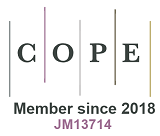
 https://orcid.org/0000-0002-5725-5018
https://orcid.org/0000-0002-5725-5018
Abstract. The article works as a set of introductory remarks that precede the collection of articles published under the title Teaching Legal History – History of Legal Teaching. In this article, the aims of the volume and its content are discussed.
Keywords: legal history, legal teaching, methodology, future of higher education.
Streszczenie. Artykuł służy przedstawieniu wstępnych uwag, poprzedzających zbiór artykułów opublikowanych pod wspólnym tytułem Teaching Legal History – History of Legal Teaching. Przedstawiono w nim cele towarzyszące publikacji tego tomu, jak również jego treść.
Słowa kluczowe: historia prawa, nauczanie prawa, metodologia, przyszłość szkolnictwa wyższego.
Having large cohorts of great lawyers is always the result of years of legal education. Whatever the legal or educational system we will have in mind, educating lawyers is always time-consuming and always requires a large amount of materials and human resources. For these reasons, talking about legal education and its character is always crucial. Like in many other aspects of our life, we shall not only focus on the future of the problem, but rather it is important to look into the past to learn a lesson that may help us better prepare for the future.
Another key issue is the diversity of experiences that legal education and legal educators have around the world. Although in many aspects we are sharing similar experiences, in many others they are different and they are often torn between the academic and vocational model of legal education. In addition, the discrepancies between different legal systems also contribute to these differences.
Finally, there are areas of jurisprudence that are more predestined to be regarded as a “niche scholarly interest” than others. This feature is commonly associated with the legal history. And, in reality, this elitism is rarely treated in a positive way. Being in the bubble of our legal history deliberations is never a good one. Legal history should serve every lawyer and not only legal historians.
These introductory thoughts reveal the reasons for the decision to collect a set of articles that would try to focus on a combination of legal history and its teaching, as well as more broadly on teaching law in the past. Trying to cross the boundaries of the above-mentioned bubble, the goal of that set it to give as wide as possible spectrum of different stories of the legal education, methods used and currently being used by the legal academics, and finally to shed some light on the future of legal history and legal education.
This presented volume of the Acta Universitatis Lodziensis. Folia Iuridica contains thirteen articles and two reviews linked thematically to the main subject of the volume. One of the main aims behind the decision to edit this collection of articles was to present as wide picture of the issues related to the theme of the volume as possible. And this goal was achieved in two different ways. First, geographically. The authors of the collected articles represent eight different countries: Australia, Austria, Belgium, Japan, Poland, the United Kingdom (Wales and Scotland) and the United States. They therefore represent a diverse spectrum of teaching traditions and methods, as well as different legal cultures – civilian, common law, and mixed legal systems. Second, a wide range of discussions were also achieved on the substantive level. The presented deliberations cover ancient, eighteenth-, nineteenth- and twentieth-centuries contexts. Some texts deal with specific subjects. Others treat the theme of the volume in a more general way.
Teaching law in antiquity is the subject of two articles, the one written by Lena Fijałkowska and the other written by Philipp Klausberger. Both authors presented the issue of methods of teaching law in ancient times. The eighteenth-century origins of the comparative method is the subject of an article written by Łukasz Korporowicz. Teaching Old Polish law in the nineteenth-century partitioned Poland is then discussed by Dorota Wiśniewska. The history of Roman law teaching in Poland and in Japan in the late nineteenth century is examined extensively by Grzegorz Nancka and Tomoyoshi Hayashi. Finally, the history of legal teaching in the twentieth century is presented by Izabela Leraczyk and Frederik Dhondt. The authors present two almost unknown issues. Izabela Leraczyk’s article is on the academic structures organized by the Polish Auxiliary Forces during their internment in Switzerland. Frederik Dhondt, in turn, presents a detailed scientific biography of the Belgian legal historian John Gilissen.
An overview of the history of legal teaching in Australia is the subject of an article written by David Barker. The methodology of teaching legal history and Roman law as well as the challenges that both disciplines are encountering in modern academia is the subject of the articles written by Michał Gałędek, Richard W. Ireland, and Paul du Plessis. In all of these pieces, the authors also ask a question regarding the future of legal education and, more closely, the future of legal history. This topic is also broadly discussed by the authors of the reviews (Kathryn Harvey and Łukasz Korporowicz) that are added at the end of the volume.
The volume below is certainly not the first one in which this kind of discussion has been presented. It is hoped, however, that it will bring some additional thoughts and comments into this important field of discussion.

